
Could David Warner be the answer to Australia's batting puzzle?
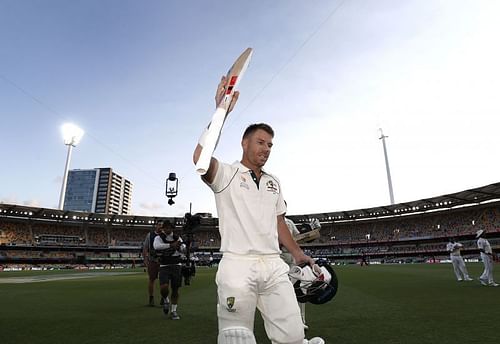
On the 19th of December, Australia chastened India to perhaps their most crushing defeat Down Under, with the hosts skittling out the latter for 36 in the second innings. Intriguingly, that victory was achieved without any significant contributions from Steve Smith, who aggregated 2 runs, and David Warner, who had been ruled out due to an injury.
Thus, there existed considerable excitement that the Aussies would go from strength to strength and crush the Indians en route another commanding home series triumph. Yet, just a few days later, the hosts unraveled rather spectacularly, meaning that they withered their advantage and allowed the tourists a foothold in the rubber.
More worryingly though, the manner of the loss smacked of the frailties that were exposed at Adelaide, before the Indians wilted. At Melbourne though, the Men In Blue didn’t lift their foot off the pedal and the Aussies simply couldn’t recover.
To put things into perspective, Australia didn’t manage a score in excess of 200 across both essays, which, incidentally, also transpired in South Australia, a few days prior. Additionally, at least in one innings, the hosts were guilty of going into their shell, allowing the Indians to establish themselves in the ascendancy.

Another thing common with those dreadful displays was the absence of a certain David Warner. And, even though Australia were expected to tide over those storms, they’ve come painfully unstuck, thereby highlighting the importance of David Warner, especially in home conditions.
Contextually speaking, in the second innings at the MCG, Australia batted on a relatively docile surface. While the odd delivery did trouble the batsmen, there were hardly any demons to worry about. However, Australia just seemed a little too timid to stamp their authority on the contest.
As far as numbers are concerned, Australia batted 103.1 overs and made only 200 runs, at a run rate that was a shade below 2 runs per over. In fact, such was the dreadfulness of their display that Glenn McGrath opined on air that the Australians’ approach was befuddling and hard to understand.
And, if someone like Glenn McGrath comes up with such a scathing assessment, there certainly has to be something wrong.
Firstly, David Warner’s incumbents haven’t really covered themselves in any sort of glory. Joe Burns, despite a half-century at Adelaide, seems a rabbit caught in blaring spotlight of Test cricket, whereas Matthew Wade seemed a square peg in a round hole.
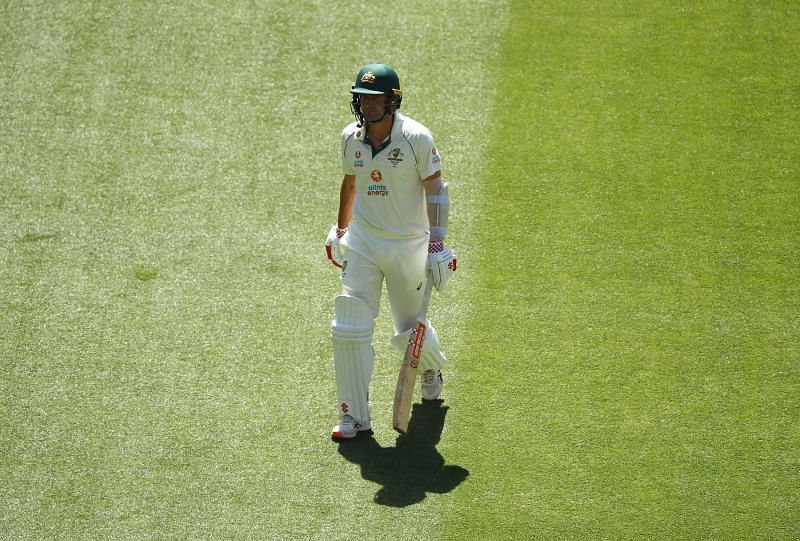
On each occasion when Australia have tried to impose themselves on the encounter, they’ve managed opening stands of 4, 10 (both at the MCG) and 16 (at Adelaide). Subsequently, Marnus Labuschagne has performed the role an opener ought to undertake, with Steve Smith also being called into the fray much earlier than Australia would’ve wanted.
Also Read: Has Steve Smith lost his hands again?
Additionally, the tone that Australia have set at the outset has enabled the Indians to formulate plans and then execute them, with incredible freedom. And, that has largely been due to the Australians’ generosity.
Moreover, the lackluster approach has meant that the hosts have gotten stuck in the quicksand. In fact, they’ve regularly become sitting ducks when India have revved up the intensity, considering the scoreboard hasn’t acted as an impediment for the tourists.
In the first innings at the MCG, Matthew Wade tried to upset the apple cart but treaded the fine line between being brave and stupid. To be fair to him though, that isn’t is natural game, considering he strikes at a tick over 50, in First-Class cricket and of course, Test cricket.
Thus, there seems to be a general consensus that the presence of David Warner would’ve made a massive difference, not just because he remains one of the best openers in the sport, but also because of his innate ability to grab matches by the scruff of their necks.
In fact, the statistics back up that notion too.
David Warner has an outstanding record at home
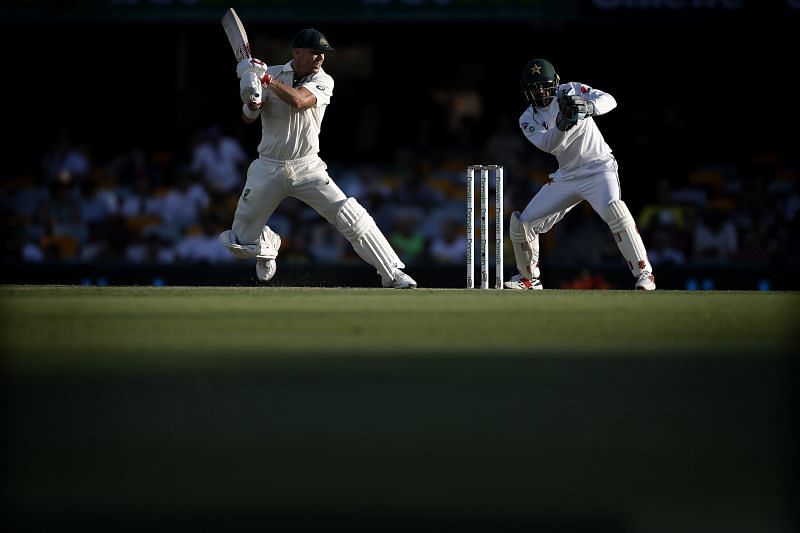
Throughout his career, David Warner has been someone who has thrived on the pitches Down Under. To put things into context, he averages 65.94 in Australia, as opposed to 34.50 in overseas conditions. More importantly though, in Australia, he strikes at around 75.6 runs per 100 balls; again, an upgrade on his strike rate abroad, which stands at 68.78.
David Warner has played 84 Test matches in his Test career, with 43 of those coming in Australia. In those games, David Warner has been on the losing side on only 4 occasions. On the other hand, he has powered the Aussies to 32 victories.
Though that could be a by-product of the Australians being strong on their home patch, it is also an indictment of how David Warner enables his side to dominate visiting teams.
In the aforementioned 32 matches that Australia have won at home, David Warner has averaged 64.58, boasting a strike rate of 75.04, both of which dwarf his overall numbers, which stand at 48.94 and 72.85, respectively.
Thus, in these games, David Warner has stridden out to the centre, puffed out his chest and let the opposition know that they are in a battle. To put things bluntly, he has effectively allowed Australia to put forth an opening gambit that has razed opponents into the ground, even before they’ve made sense of what has transpired.
Consequently, one wouldn’t be wrong to opine that David Warner is perhaps one of Australia’s most impactful batsmen.
To cite an example, one only needs to remember the 2014-15 series against India, wherein David Warner plundered 427 runs in 8 innings, at a strike rate of nearly 78. In general, David Warner enjoys playing against India, averaging 49.50 across 8 matches. The strike rate, too, nudges nearly 83 runs per 100 balls.
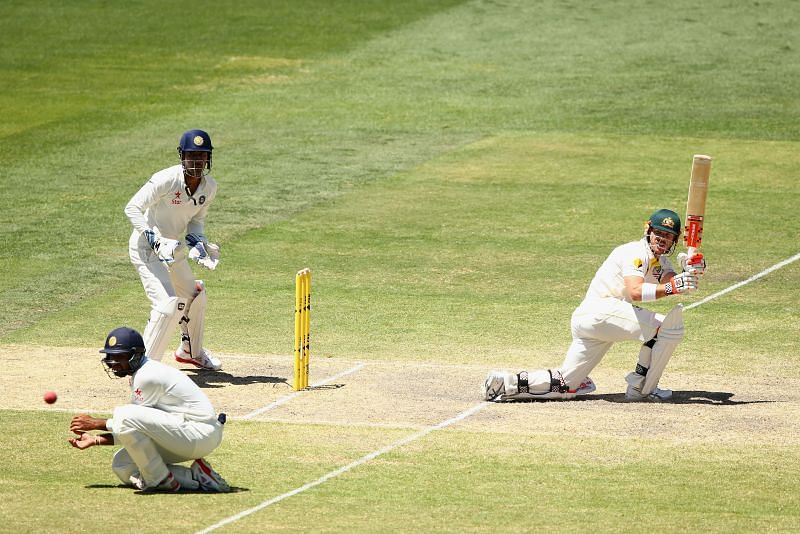
Furthermore, David Warner’s belligerence regularly forces the opposition to re-think their plans and come up with relatively half-baked ideas – something that the Indians haven’t been subjected to, owing to Australia’s trepidation.
Against India, in both tussles so far, Australia have been a tad guilty of being lackadaisical at the top of the order, rather authorizing the Indians to take control and dictate proceedings.
With David Warner in the mix though, that might not be as easy, considering the brilliant record he possesses and the sheer aura he brings to the fore.
Having said that, there still exists a possibility that David Warner might not mould the game to his team’s liking, and that he might even fail, especially on the back of an injury lay-off. Cricket is a game of glorious uncertainties, isn’t it?
Yet, there is palpable evidence that such situations don’t come around too often, especially Down Under. And, with Australia woefully out of sorts with the willow, that glimmer of hope is something they will certainly want to cling on to.
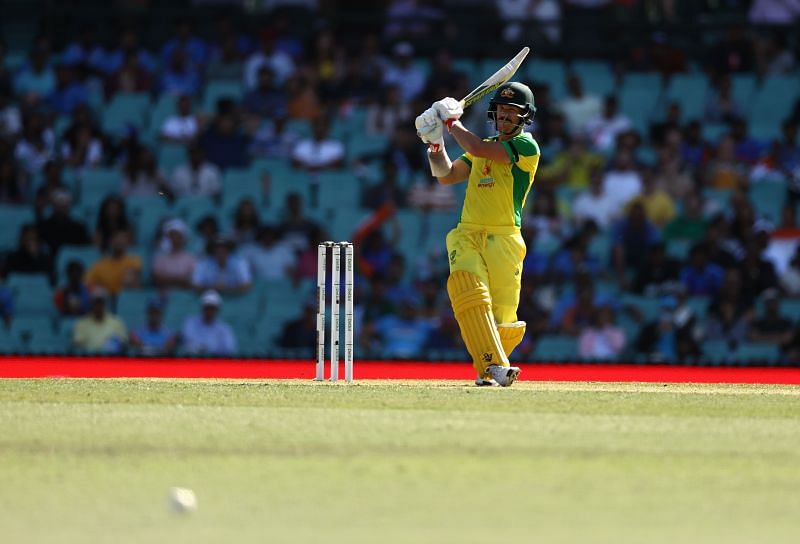
A few days ago, Justin Langer talked about how David Warner was ‘flying’ in the nets, at least with the bat. Rather poetically, that bit of analogy perhaps embodied Australia’s ailments, for they’ve hardly harbored aspirations to soar high.
So far, sans David Warner, Australia’s intentions of gliding over every obstacle have flapped in the air, before inevitably crashing into the turf. To that end, David Warner can even be the albatross that provides the divine intervention Australia are craving so dearly.
After all, during periods of immense strife, attack could morph into the best form of defence. And, not many seem to be as dexterous in that art as David Warner, do they?